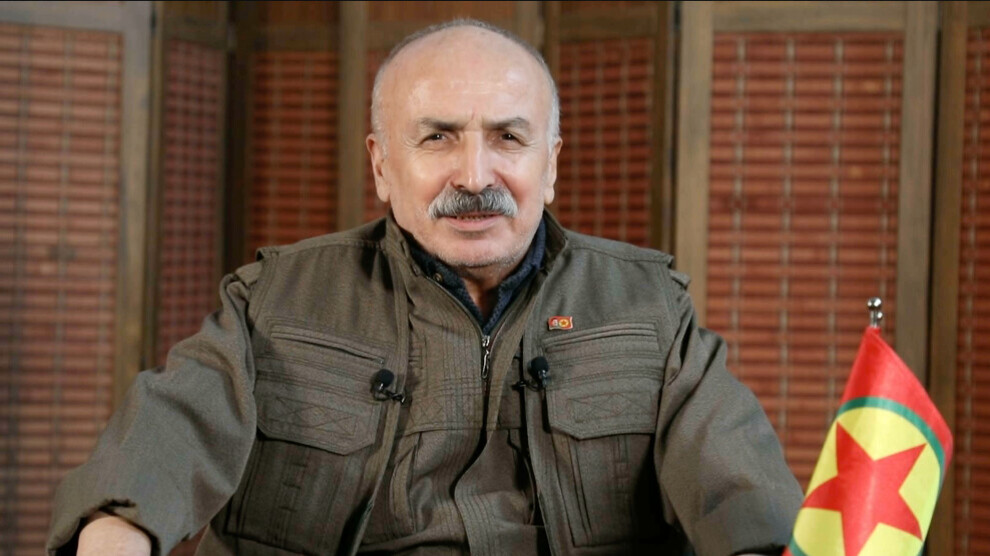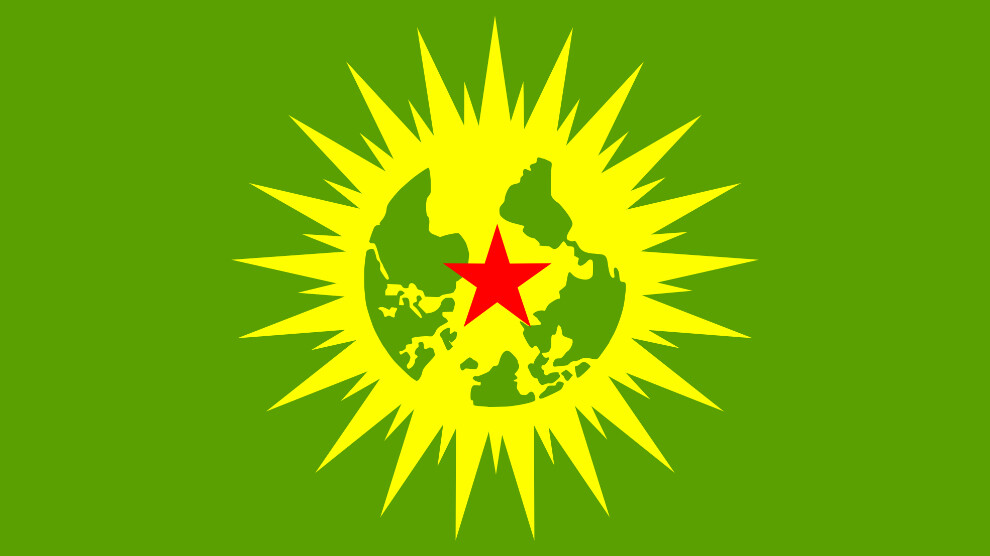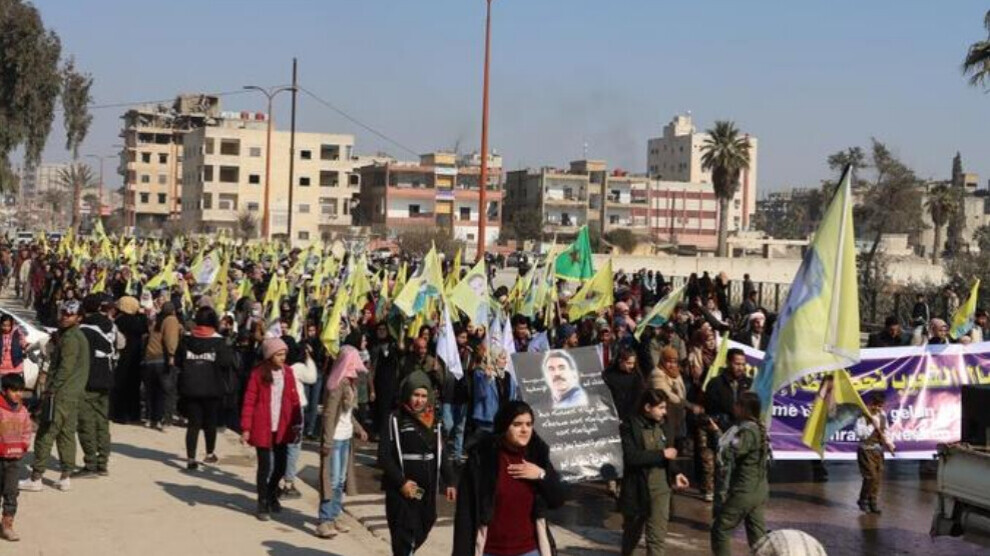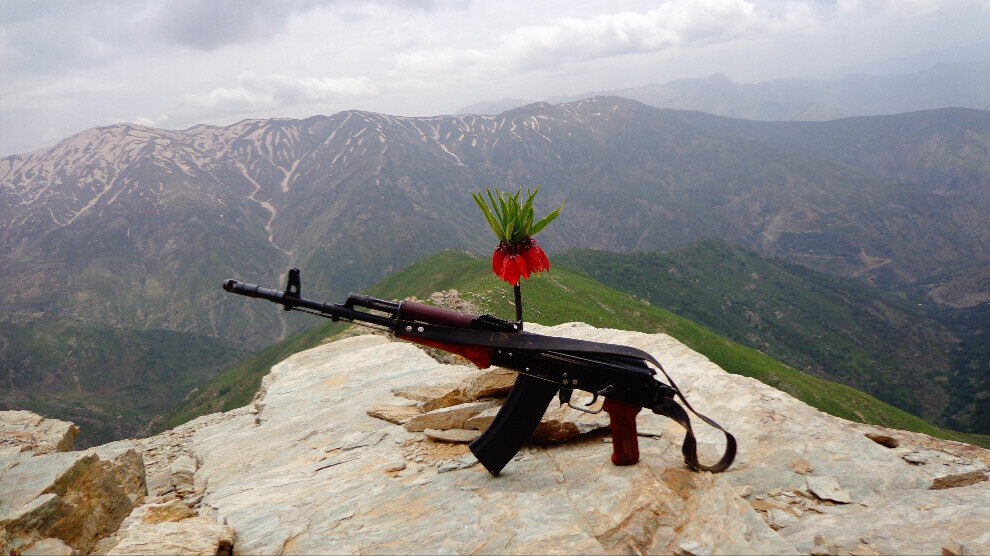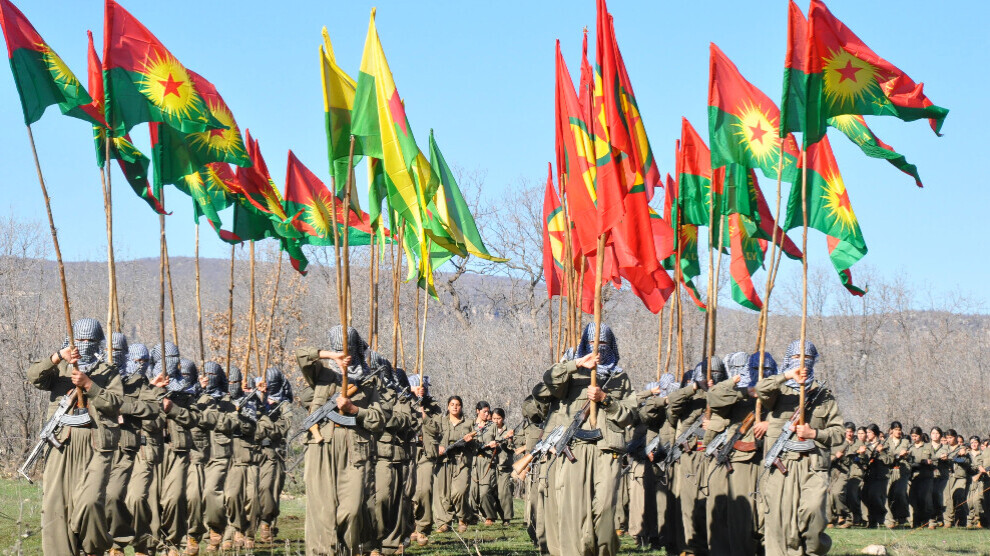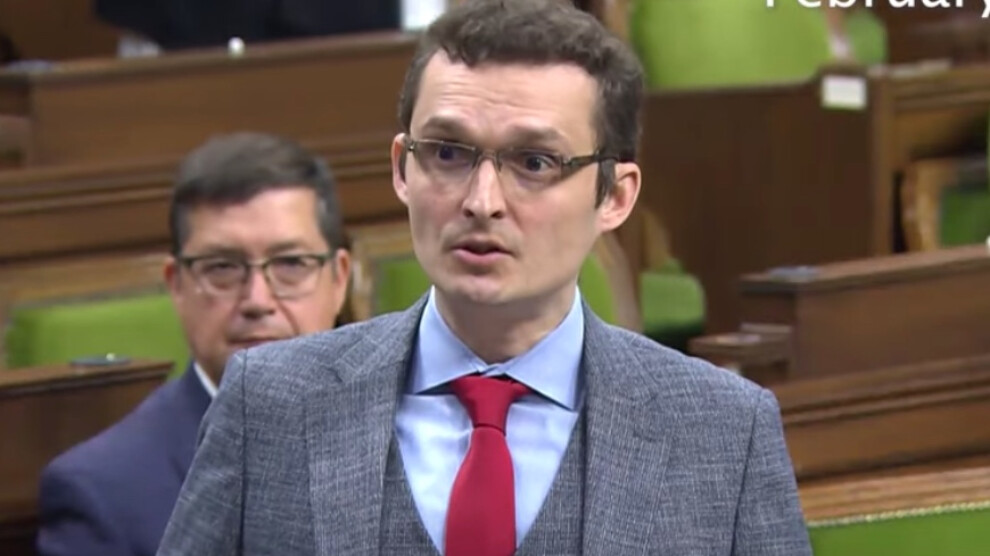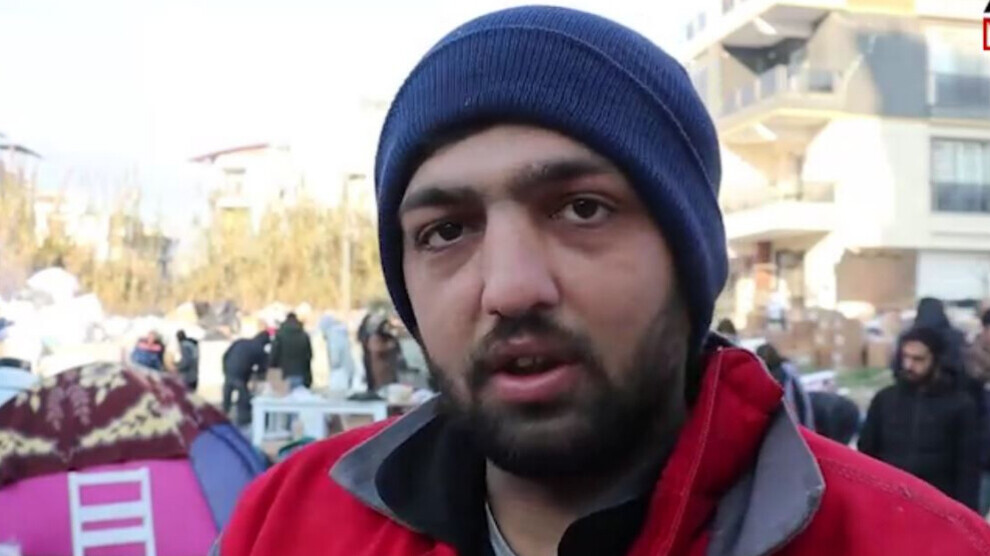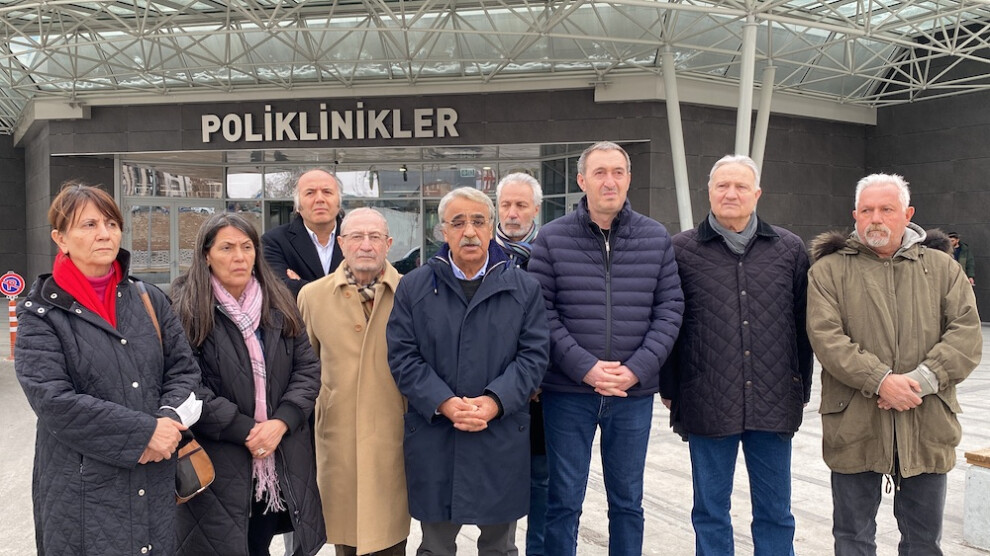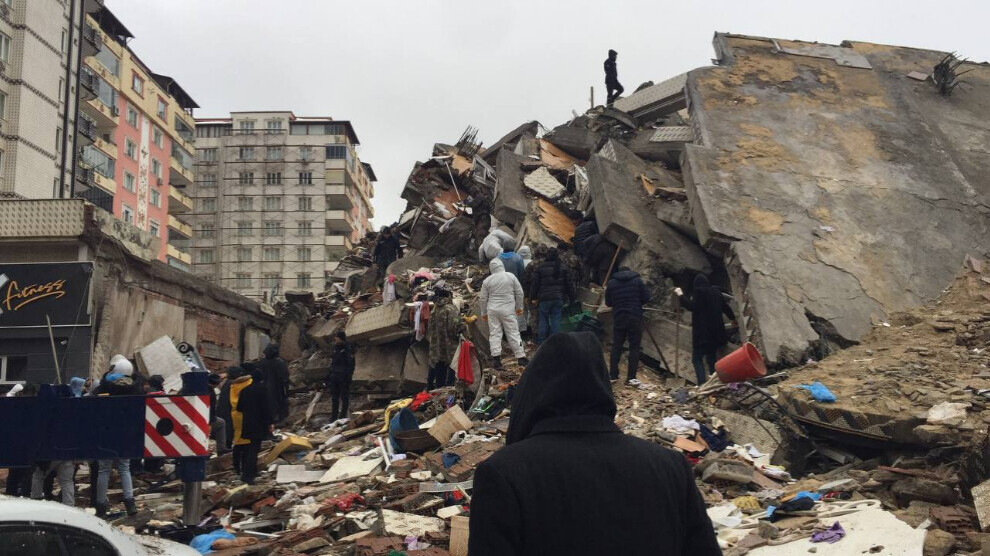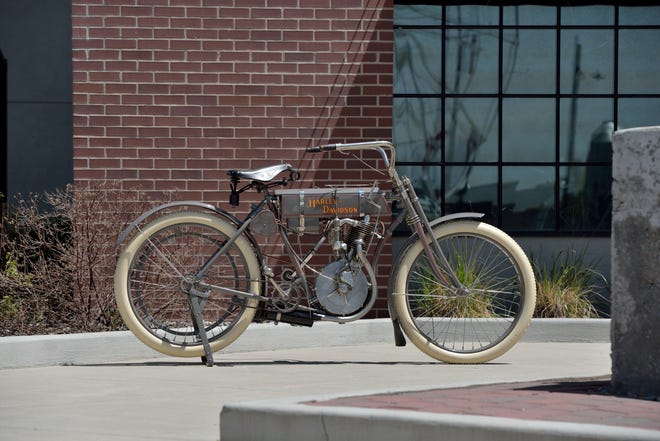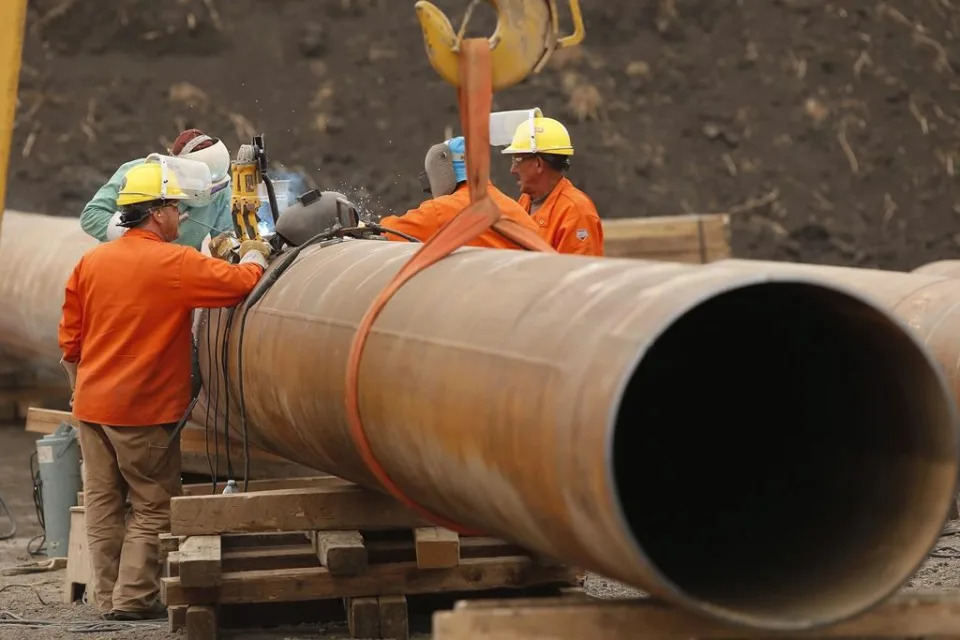Turkey's once mighty developers under fire after quake
 Monday's quake has left a trail of destruction while claiming more than 30,000 lives © OZAN KOSE / AFP
Monday's quake has left a trail of destruction while claiming more than 30,000 lives © OZAN KOSE / AFP
Issued on: 12/02/2023
Ankara (AFP) – Their mugshots are everywhere: a Turkish developer arrested while trying to flee the country and two colleagues connected to a luxurious apartment tower that crumbled in Monday's disastrous quake.
The traumatised country's social media users are calling for their heads.
Turkish officials are turning them into the focus of public outrage at the shoddy business dealings that appear to have contributed to the disaster's almost unfathomable scale.
And architects view the Ronesans tower's collapse as a symbol of Turkey's inability to maintain building standards that could have dramatically reduced the catastrophic toll.
The number of confirmed fatalities surpassed 29,000 in Turkey and 3,500 in Syria on Sunday.
The quake has become the region's deadliest natural disaster in more than 80 years. But officials at the United Nations warn that the final fatalities number may be closer to 50,000.
Turkish officials have responded to the outrage by announcing a rapid series of investigations and arrests linked to the construction and development business.
Three people were put behind bars by Sunday and seven more have been detained -- including two developers who were trying to relocate to the former Soviet republic of Georgia.
Turkey's justice ministry has issued warrants for 114 more people and launched 134 investigations.
'Irregularities'
The problem for President Recep Tayyip Erdogan's government -- in power for the past 20 years -- is that the Ronesans case is far from unique.
Turkey has erected towers across fault lines and swathes of earthquake-prone regions that have been bracing for a major jolt for years.
One of the biggest single disasters struck a hotel housing two dozen Cypriot students and 15 accompanying adults who were in Turkey for a volleyball tournament.
All of the children died and only four adults survived.
NTV television said the hotel was briefly closed due to construction "irregularities". But then it reopened its doors.
"I want these people to face justice. They are murderers," an unnamed witness of the hotel's collapse told NTV.
 Thousands of buildings have crumbled across Turkey from the 7.8-magnitude tremor © OZAN KOSE / AFP
Thousands of buildings have crumbled across Turkey from the 7.8-magnitude tremor © OZAN KOSE / AFP
The quake tore off the building's walls "like sheets of paper", the survivor said.
Erdogan has responded to the anger by arguing that no one could have been prepared to deal with Turkey's "worst disaster in history".
But the waves of arrests and investigations represent a marked change in attitude towards an industry that has helped transform Turkey's underdeveloped regions while enjoying a profitable boom.
Denials
Six months passed before Turkey arrested the first suspect in the wake of another disastrous quake in 1999.
More than 17,000 people died in the country's northwestern regions near Istanbul at the time.
Officials eventually opened 2,100 investigations against developers of collapsed buildings. They did not lead to much.
A general amnesty in December 2000 saw 1,800 of those cases dropped.
The courts found fault in only 110 cases. Most of those found guilty ended up benefiting from a statute of limitation that entered into force in 2007.
The Ronesans project's developer has also pleaded innocence.
"I do not know why the building collapse," Mehmet Yasar Coskun said.
"All the permits were issued after studies by the municipality and the oversight company."
A local mayor who issued the building permit in 2021 denied responsibility as well.
"A private company conducted the control procedure," Seyfettin Yeral told the T24 news site. "We do not have employees who can do such work."
California standards?
Turkey has adopted a series of buildings standards and regulations modelled on those of California.
But these have been regularly revised -- the last time in 2018.
 The United Nations warned that the final death toll may approach 50,000 across Turkey and Syria © OZAN KOSE / AFP
The United Nations warned that the final death toll may approach 50,000 across Turkey and Syria © OZAN KOSE / AFP
Engineers and architects interviewed by AFP said most of Turkey's builders manage to work their way around existing codes.
"On paper, the standards are respected, with contracts awarded to private companies responsible for controlling them," Istanbul architect Aykut Koksal said.
But Koksal stressed that developers often strike private deals with companies in charge of conducting the inspections.
He said this dilutes enforcement and gives developer much leeway to cut costs.
© 2023 AFP
Issued on: 12/02/2023
Ankara (AFP) – Their mugshots are everywhere: a Turkish developer arrested while trying to flee the country and two colleagues connected to a luxurious apartment tower that crumbled in Monday's disastrous quake.
The traumatised country's social media users are calling for their heads.
Turkish officials are turning them into the focus of public outrage at the shoddy business dealings that appear to have contributed to the disaster's almost unfathomable scale.
And architects view the Ronesans tower's collapse as a symbol of Turkey's inability to maintain building standards that could have dramatically reduced the catastrophic toll.
The number of confirmed fatalities surpassed 29,000 in Turkey and 3,500 in Syria on Sunday.
The quake has become the region's deadliest natural disaster in more than 80 years. But officials at the United Nations warn that the final fatalities number may be closer to 50,000.
Turkish officials have responded to the outrage by announcing a rapid series of investigations and arrests linked to the construction and development business.
Three people were put behind bars by Sunday and seven more have been detained -- including two developers who were trying to relocate to the former Soviet republic of Georgia.
Turkey's justice ministry has issued warrants for 114 more people and launched 134 investigations.
'Irregularities'
The problem for President Recep Tayyip Erdogan's government -- in power for the past 20 years -- is that the Ronesans case is far from unique.
Turkey has erected towers across fault lines and swathes of earthquake-prone regions that have been bracing for a major jolt for years.
One of the biggest single disasters struck a hotel housing two dozen Cypriot students and 15 accompanying adults who were in Turkey for a volleyball tournament.
All of the children died and only four adults survived.
NTV television said the hotel was briefly closed due to construction "irregularities". But then it reopened its doors.
"I want these people to face justice. They are murderers," an unnamed witness of the hotel's collapse told NTV.
The quake tore off the building's walls "like sheets of paper", the survivor said.
Erdogan has responded to the anger by arguing that no one could have been prepared to deal with Turkey's "worst disaster in history".
But the waves of arrests and investigations represent a marked change in attitude towards an industry that has helped transform Turkey's underdeveloped regions while enjoying a profitable boom.
Denials
Six months passed before Turkey arrested the first suspect in the wake of another disastrous quake in 1999.
More than 17,000 people died in the country's northwestern regions near Istanbul at the time.
Officials eventually opened 2,100 investigations against developers of collapsed buildings. They did not lead to much.
A general amnesty in December 2000 saw 1,800 of those cases dropped.
The courts found fault in only 110 cases. Most of those found guilty ended up benefiting from a statute of limitation that entered into force in 2007.
The Ronesans project's developer has also pleaded innocence.
"I do not know why the building collapse," Mehmet Yasar Coskun said.
"All the permits were issued after studies by the municipality and the oversight company."
A local mayor who issued the building permit in 2021 denied responsibility as well.
"A private company conducted the control procedure," Seyfettin Yeral told the T24 news site. "We do not have employees who can do such work."
California standards?
Turkey has adopted a series of buildings standards and regulations modelled on those of California.
But these have been regularly revised -- the last time in 2018.
Engineers and architects interviewed by AFP said most of Turkey's builders manage to work their way around existing codes.
"On paper, the standards are respected, with contracts awarded to private companies responsible for controlling them," Istanbul architect Aykut Koksal said.
But Koksal stressed that developers often strike private deals with companies in charge of conducting the inspections.
He said this dilutes enforcement and gives developer much leeway to cut costs.
© 2023 AFP
Turkey arrests building contractors six days after earthquakes

As rescuers continued to pull a lucky few from the rubble six days after a pair of earthquakes devastated south-east Turkey and northern Syria, Turkish officials detained or issued arrest warrants for some 130 people allegedly involved in the construction of buildings that collapsed and crushed their occupants.
The death toll from Monday’s quakes stood at 28,191 on Sunday morning, with more than 80,000 others injured, and is certain to rise.
As despair also bred rage at the agonisingly slow rescue efforts, the focus turned to who is to blame for not better preparing people in the earthquake-prone region which includes an area of Syria that was already suffering from years of civil war.
Even though Turkey has, on paper, construction codes that meet current earthquake-engineering standards, they are rarely enforced, explaining why thousands of buildings slumped on to their side or pancaked downwards on to residents.
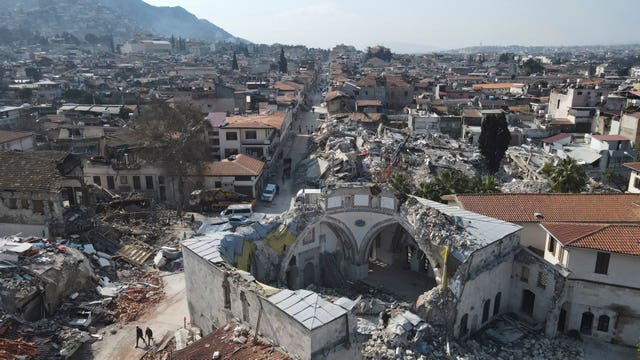
Turkish Vice President Fuat Oktay said late on Saturday that warrants have been issued for the detention of 131 people suspected to being responsible for collapsed buildings.
Turkey’s justice minister has vowed to punish anyone responsible, and prosecutors have begun gathering samples of buildings for evidence on materials used in constructions.
The quakes were powerful, but victims, experts and people across Turkey are blaming bad construction for multiplying the devastation.
On Sunday, authorities in the province of Gaziantep arrested two people who are suspected of having cut down columns to make extra room in a building that collapsed, the state-run Anadolu Agency said.
A day earlier, Turkey’s Justice Ministry announced the planned establishment of “Earthquake Crimes Investigation” bureaux.
The bureaux would aim to identify contractors and others responsible for building works, gather evidence, instruct experts including architects, geologists and engineers, and check building permits and occupation permits.
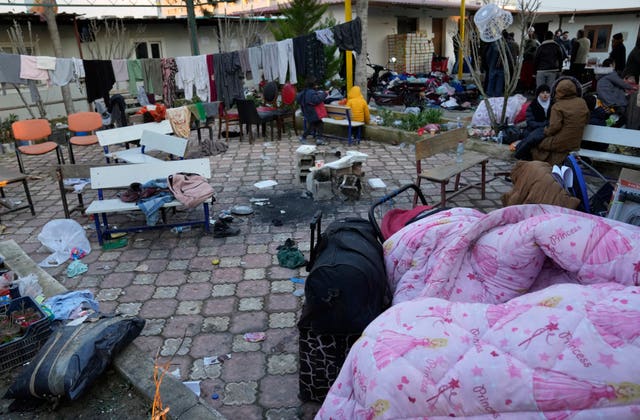
A building contractor was detained by authorities at Istanbul airport on Friday before he could board a flight out of the country.
He was the contractor of a luxury 12-storey building in the historic city of Antakya, in Hatay province, the collapse of which left an untold number of dead.
The detentions could help direct public anger toward builders and contractors, deflecting attention away from local and state officials who allowed the apparently sub-standard constructions to go ahead.
Turkish President Recep Tayyip Erdogan’s government, already burdened by an economic downturn and high inflation, faces parliamentary and presidential elections in May.
Survivors, many of whom lost loved ones, have also turned their frustration and anger on authorities.
Rescue crews have been overwhelmed by the widespread damage which has affected roads and airports, making it even more difficult to race against the clock.
Mr Erdogan acknowledged earlier in the week that the initial response has been hampered by the extensive damage.
He said the worst-affected area is 310 miles (500km) in diameter and was home to 13.5 million people.
During a tour of quake-damaged cities on Saturday, he said a disaster on this scale is rare, and again referred to it as the “disaster of the century”.
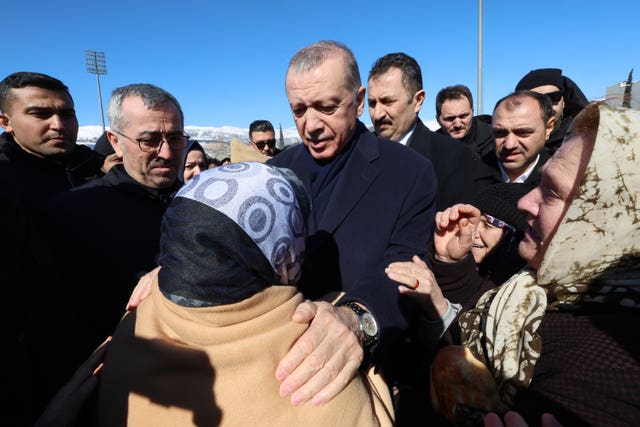
Rescuers, including crews from other countries, continued to search the rubble in the hope of finding additional survivors who could yet beat increasingly long odds.
Thermal cameras were used to probe the piles of concrete and metal, while rescuers demanded silence so they could hear the voices of the trapped.
A six-year-old boy was removed from the debris of his home in Adiyaman city on Sunday, 151 hours after the quake.
The rescue was broadcast live by HaberTurk television, showing the child wrapped in a space blanket and put into an ambulance.
An exhausted rescuer removed his surgical mask and took deep breaths as a group of women could be heard crying with joy.
Turkey’s health minister, Fahrettin Koca, posted a video of a young girl in a navy blue jumper who was rescued.
“Good news at the 150th hour. Rescued a little while ago by crews. There is always hope!” he tweeted.
The efforts of a team of Italian and Turkish rescuers also paid off when they removed a 35-year-old man from the wreckage in the hard-hit city of Antakya.
Mustafa Sarigul appeared to be unscathed as he was carried on a stretcher to an ambulance, 149 hours after the first quakes, private NTV television reported.
Overnight, a child was also freed in the town of Nizip, in Gaziantep, state-run Anadolu Agency reported, while a 32-year woman, was rescued from the ruins of an eight-storey building in the city of Antakya. The woman, a teacher named Meltem, asked for tea as soon as she emerged, according to NTV.
In Kahramanmaras, near the epicentre of the first 7.8 quake that struck early on Monday morning, efforts were under way to reach a survivor detected by sniffer dogs beneath a now-flattened seven-storey building, NTV reported.
However, those found alive remain the rare exception.
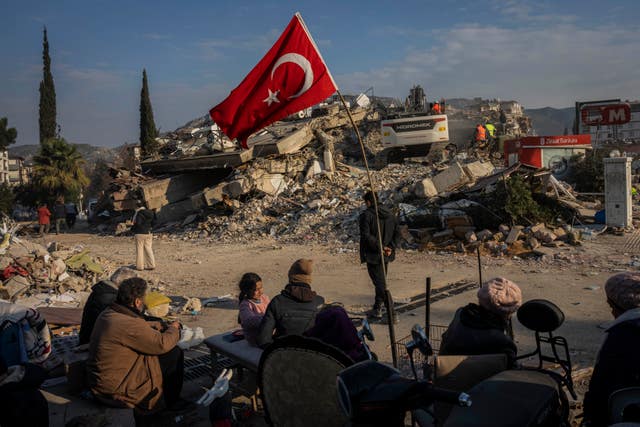
A large makeshift graveyard was under construction in Antakya’s outskirts on Saturday.
Diggers and bulldozers dug pits in the field as trucks and ambulances loaded with black body bags arrived continuously.
The hundreds of graves, spaced no more than 3ft (1m) apart, were marked with simple wooden planks set vertically in the ground.
The picture is less clear of the plight across the border in Syria.
The death toll in Syria’s north-western rebel-held region has reached 2,166, according to the rescue worker group the White Helmets.
The overall death toll in Syria stood at 3,553 on Saturday, though the 1,387 deaths reported for government-held parts of the country has not been updated for days.
Turkey has issued over 100 building arrest warrants after the deadly earthquake
February 12, 2023
THE ASSOCIATED PRESS
Emergency teams search for people in the rubble of a destroyed building in Adana, southern Turkey, Tuesday, Feb. 7, 2023. For Syrians and Ukrainians fleeing the violence back home, the earthquake that struck in Turkey and Syria is but the latest tragedy.Hussein Malla/AP
ANTAKYA, Turkey — As rescuers still pulled a lucky few from the rubble six days after a pair of earthquakes devastated southeast Turkey and northern Syria, Turkish officials detained or issued arrest warrants for some 130 people allegedly involved in the construction of buildings that toppled down and crushed their occupants.
The death toll from Monday's quakes stood at 28,191 — with another 80,000-plus injured — as of Sunday morning and was certain to rise as bodies kept emerging.
As despair also bred rage at the agonizingly slow rescue efforts, the focus turned to who was to blame for not better preparing people in the earthquake-prone region that includes an area of Syria that was already suffering from years of civil war.
Even though Turkey has, on paper, construction codes that meet current earthquake-engineering standards, they are too rarely enforced, explaining why thousands of buildings slumped onto their side or pancaked downward onto residents.
CULTURE
Turkish novelist Elif Shafak reflects on the earthquake in Turkey
Turkish Vice President Fuat Oktay said late on Saturday that warrants have been issued for the detention of 131 people suspected to being responsible for collapsed buildings.
Turkey's justice minister has vowed to punish anyone responsible, and prosecutors have begun gathering samples of buildings for evidence on materials used in constructions. The quakes were powerful, but victims, experts and people across Turkey are blaming bad construction for multiplying the devastation.
Authorities arrested two people in the province of Gaziantep on Sunday who are suspected of having cut down columns to make extra room in a building that collapsed, the state-run Anadolu Agency said.
A day earlier, Turkey's Justice Ministry announced the planned establishment of "Earthquake Crimes Investigation" bureaus. The bureaus would aim to identify contractors and others responsible for building works, gather evidence, instruct experts including architects, geologists and engineers, and check building permits and occupation permits.
A building contractor was detained by authorities on Friday at Istanbul airport before he could board a flight out of the country. He was the contractor of a luxury 12-story building in the historic city of Antakya, in Hatay province, the collapse of which left an untold number of dead.
The detentions could help direct public anger toward builders and contractors, deflecting attention away from local and state officials who allowed the apparently sub-standard constructions to go ahead. Turkish President Recep Tayyip Erdogan's government, already burdened by an economic downturn and high inflation, faces parliamentary and presidential elections in May.
Survivors, many of whom lost loved ones, have turned their frustration and anger also at authorities. Rescue crews have been overwhelmed by the widespread damage which has impacted roads and airports, making it even more difficult to race against the clock.
Erdogan acknowledged earlier in the week that the initial response has been hampered by the extensive damage. He said the worst-affected area was 500 kilometers (310 miles) in diameter and was home to 13.5 million people in Turkey. During a tour of quake-damaged cities Saturday, Erdogan said a disaster of this scope was rare, and again referred to it as the "disaster of the century."
Rescuers, including crews from other countries, continued to probe the rubble in hope of finding additional survivors who could yet beat the increasingly long odds. Thermal cameras were used to probe the piles of concrete and metal, while rescuers demanded silence so that they could hear the voices of the trapped.
A 6-year-old boy was removed from the debris of his home in Adiyaman city on Sunday, 151 hours after the quake. The rescue was broadcast live by HaberTurk television, showing the child wrapped in a space blanket and put into an ambulance. An exhausted rescuer removed his surgical mask and took deep breaths as a group of women could be heard crying in joy.
Turkey's health minister, Fahrettin Koca, posted a video of a young girl in a navy blue jumper who was rescued. "Good news at the 150th hour. Rescued a little while ago by crews. There is always hope!" he tweeted.
The efforts of a team of Italian and Turkish rescuers also paid off when they removed a 35-year-old man from the wreckage in the hard-hit city of Antakya. The man, Mustafa Sarigul, appeared to be unscathed as he was being transported on a stretcher to an ambulance, 149 hours after the first quakes, private NTV television reported.
Overnight, a child was also freed in the town of Nizip, in Gaziantep, state-run Anadolu Agency reported, while a 32-year woman, was rescued from the ruins of a eight-story building in the city of Antakya. The woman, a teacher named Meltem, asked for tea as soon as she emerged, according to NTV.
In Kahramanmaras, near the epicenter of the first 7.8 quake that struck early Monday morning, efforts were underway to reach a survivor detected by sniffer dogs beneath a now-pancaked seven-story building, NTV reported.
Those found alive, however, remained the rare exception.
A large makeshift graveyard was under construction in Antakya's outskirts on Saturday. Backhoes and bulldozers dug pits in the field as trucks and ambulances loaded with black body bags arrived continuously. The hundreds of graves, spaced no more than 3 feet (a meter) apart, were marked with simple wooden planks set vertically in the ground.
The picture is less clear of the plight across the border in Syria.
The death toll in Syria's northwestern rebel-held region has reached 2,166, according to the rescue worker group the White Helmets. The overall death toll in Syria stood at 3,553 on Saturday, though the 1,387 deaths reported for government-held parts of the country hadn't been updated in days.



